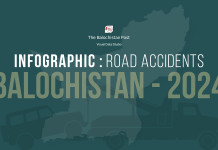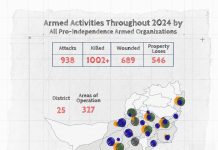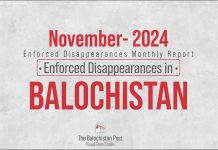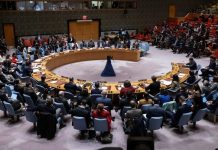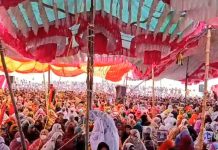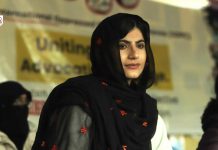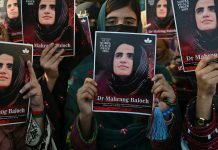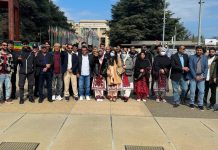Committee to Protect Journalists (CPJ), in its 2019 report says, at least 250 journalists are imprisoned globally as authoritarians show no signs of letting up on the critical media.
According to CPJ, the number of journalists imprisoned globally for their work in 2019 remained near record highs, as China tightened its iron grip on the press and Turkey, having stamped out virtually all independent reporting, released journalists awaiting trial or appeal. Authoritarianism, instability, and protests in the Middle East led to a rise in the number of journalists locked up in the region — particularly in Saudi Arabia, which is now on par with Egypt as the third worst jailer worldwide.
In its annual global survey, the Committee to Protect Journalists found at least 250 journalists in jail in relation to their work, compared with an adjusted 255 a year earlier. The highest number of journalists imprisoned in any year since CPJ began keeping track is 273 in 2016. After China, Turkey, Saudi Arabia, and Egypt, the worst jailers are Eritrea, Vietnam, and Iran.
While the majority of journalists imprisoned worldwide face anti-state charges, in line with recent years, the number charged with “false news” rose to 30 compared with 28 last year. Use of the charge, which the government of Egyptian President Abdel Fattah el-Sisi applies most prolifically, has climbed steeply since 2012, when CPJ found only one journalist worldwide facing the allegation. In the past year, repressive countries including Russia and Singapore have enacted laws criminalizing the publication of “fake news.”
This year’s census marks the first time in four years that Turkey has not been the world’s worst jailer, but the reduced number of prisoners does not signal an improved situation for the Turkish media. Rather, the fall to 47 journalists in jail from 68 last year reflects the successful efforts by the government of President Recep Tayyip Erdoğan to stamp out independent reporting and criticism by closing down more than 100 news outlets and lodging terror-related charges against many of their staff.
Since CPJ began keeping track of journalists in prison in the early 1990s, Turkey has frequently vied with China for the ignominious title of the world’s worst jailer. In 2019, CPJ found at least 48 journalists jailed in China, one more than in 2018; the number has steadily increased as President Xi Jinping consolidated political control of the country and instituted ever tighter controls on the media.
Authorities in Saudi Arabia — where the number of journalists jailed has risen steadily since 2011 — also targeted several journalists who had apparently ceased working. In 2019, the Gulf kingdom was holding at least 26 journalists behind bars, making it the third worst jailer alongside Egypt. Saudi authorities barely make any pretense of due process; no charges have been disclosed in 18 of the cases, and those who have been tried have been sentenced in a secretive and often rushed manner. There are widespread reports of torture; medical reports leaked to The Guardian in the spring detailed evidence of authorities beating, burning, and starving political prisoners, including four journalists. The arrests and documented abuse show how Crown Prince Mohammed bin Salman, who U.S. intelligence services and an independent inquiry by a U.N. rapporteur say is responsible for the 2018 murder of Washington Post columnist Jamal Khashoggi, continues his brutal crackdown on dissent, CPJ report said.
In total, the number of journalists in Egyptian jails rose only slightly from last year to 26, as several were released during the year. But in another cruel manifestation of Egypt’s fear of critical journalists, authorities ordered some released prisoners, notably award-winning photographer Mahmoud Abou Zeid, known as Shawkan, and prominent blogger Alaa Abdelfattah to check in at a police station every evening.
Several of the fresh arrests in Egypt came ahead of protests against army corruption on September 19, which included calls for President el-Sisi to resign. Most of the journalists jailed in Egypt are grouped in mass trials and charged with both terror offenses and false news.
Iran, which also saw significant protests in 2019, increased the number of journalists in jail to 11.
Russia had seven journalists in custody, four of them because of their work in occupied Crimea documenting the Crimean Tatar minority population and Russian attacks on them.
Of 39 journalists jailed in sub-Saharan Africa, the bulk remain in Eritrea, where most have not been heard from for nearly two decades; Cameroon was second worst.
Vietnam remained Asia’s second-worst jailer after China, with 12 behind bars. In all of the Americas, three journalists were jailed.
Ninety-eight percent of journalists jailed worldwide are locals covering their own country. Three of the four journalists with foreign citizenship are imprisoned in Saudi Arabia, and the fourth in China.
Twenty of the jailed journalists, or 8%, are female, compared with 13% last year.
Politics was the beat most likely to land journalists in jail, followed by human rights and corruption.More than half of those imprisoned were reporters publishing online.
CPJ defines journalists as people who cover the news or comment on public affairs in any media, including print, photographs, radio, television, and online. In its annual prison census, CPJ includes only those journalists who it has confirmed have been imprisoned in relation to their work.


